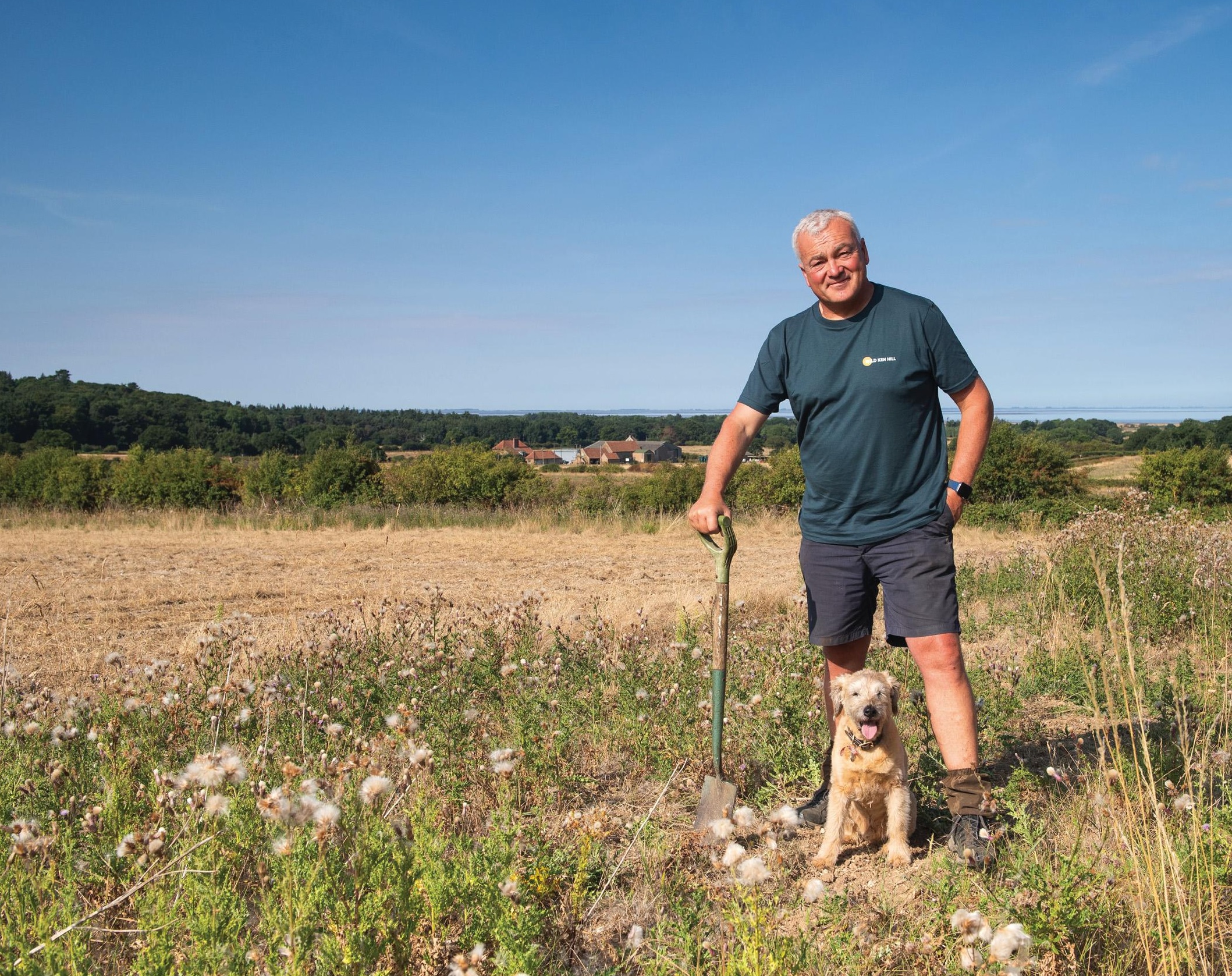
THIS summer, two very British festivals took place. Both saw crowds of people in Wellingtons and denim cut-offs gathering in fields to the camp, drinking beer, and dance a summer's evening away. Those attending Somerset's Glastonbury Festival had come for the music. Those at Groundswell in Hertfordshire, however, were there to share ideas about something being described as 'the new rock and roll': regenerative farming.
In 2017, brothers John and Paul Cherry hosted the first Groundswell festival in a shed on their farm when 450 farmers came together to discuss techniques such as direct drilling and cover cropping. Six years on, that number has swelled to 5,000.
Regenerative farming seems to have captured the imagination of both government and big business-George Eustice, Secretary of State for Defra, chose Groundswell to launch the Government's new Sustainable Farming Incentive, and the fast-food chain McDonald's is trialling regenerative-grazing methods. However, with no agreed definition or regulation, what does regenerative agriculture actually mean?
The answer must be seen in the context of the past 70 years when chemicals and machinery achieved the job of feeding the world. Now, enough food is produced globally to feed up to six billion more people than currently exist, although it doesn't always get to those it should. The unintended consequences of this have caused catastrophic damage to our wildlife and soils, contributed to global warming, fuelled an obesity crisis, and created a food system that means 40% of all food produced is either lost or wasted.
This story is from the {{IssueName}} edition of {{MagazineName}}.
Start your 7-day Magzter GOLD free trial to access thousands of curated premium stories, and 9,000+ magazines and newspapers.
Already a subscriber ? Sign In
This story is from the {{IssueName}} edition of {{MagazineName}}.
Start your 7-day Magzter GOLD free trial to access thousands of curated premium stories, and 9,000+ magazines and newspapers.
Already a subscriber? Sign In

Tales as old as time
By appointing writers-in-residence to landscape locations, the National Trust is hoping to spark in us a new engagement with our ancient surroundings, finds Richard Smyth

Do the active farmer test
Farming is a profession, not a lifestyle choice’ and, therefore, the Budget is unfair

Night Thoughts by Howard Hodgkin
Charlotte Mullins comments on Moght Thoughts

SOS: save our wild salmon
Jane Wheatley examines the dire situation facing the king of fish

Into the deep
Beneath the crystal-clear, alien world of water lie the great piscean survivors of the Ice Age. The Lake District is a fish-spotter's paradise, reports John Lewis-Stempel

It's alive!
Living, burping and bubbling fermented masses of flour, yeast and water that spawn countless loaves—Emma Hughes charts the rise and rise) of sourdough starters

There's orange gold in them thar fields
A kitchen staple that is easily taken for granted, the carrot is actually an incredibly tricky customer to cultivate that could reduce a grown man to tears, says Sarah Todd

True blues
I HAVE been planting English bluebells. They grow in their millions in the beechwoods that surround us—but not in our own garden. They are, however, a protected species. The law is clear and uncompromising: ‘It is illegal to dig up bluebells or their bulbs from the wild, or to trade or sell wild bluebell bulbs and seeds.’ I have, therefore, had to buy them from a respectable bulb-merchant.

Oh so hip
Stay the hand that itches to deadhead spent roses and you can enjoy their glittering fruits instead, writes John Hoyland

A best kept secret
Oft-forgotten Rutland, England's smallest county, is a 'Notswold' haven deserving of more attention, finds Nicola Venning